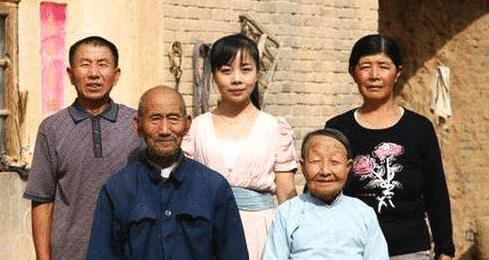Introduction: "The old fool, the old second elf, there is a bad old man in the family" What does it mean? Why count the old ones "bad"?

The two-child policy has now been liberalized, but in the countryside, there is no peak fertility period as many experts expected. There are many young people who are reluctant to regenerate after having a child. In the city, there are a small number of people, even a child is not willing to have, is worried that after the birth of the child will increase the cost of all aspects, thereby reducing their original quality of life.
However, in the past, basically every household had four or five children, and some large families had seven or eight children, many brothers and sisters, and the family was also very lively. After all, in the past, there was no such thing as family planning, and at that time, people's idea was that "many people have great strength", more family members, and more people working. And about children in the countryside also has a very classic saying "the old fool, the old second fine, the family has a bad old man", this I believe many people have heard, then the ancients handed down this sentence is reasonable? Why is the number of brothers and sisters "the worst"?
This old saying is a lot of rural old people, and now they still hang on their lips. Its literal meaning is also relatively simple, saying that there will be several children in a family before, of which the first born child, that is, the old assembly is more honest and generous, while the second oldest will be more shrewd and cunning, and the last born old man is not as obedient as the big brothers and sisters in front of him, will often be mischievous, and also love to cause trouble.
In the past, Chinese families had several children. Among them, the eldest is often more honest than the younger siblings, which was a common phenomenon in the past. This is because after the eldest is born, the parents give him high expectations. As the eldest son (daughter) in the family, he also has the heaviest responsibilities among several children. The old saying that "the eldest brother is the father" highlights the status of the eldest son, so his parents discipline him more strictly from an early age. Even in life, parents often say, "You are the eldest, you have to let your younger brothers and sisters." Therefore, children are indoctrinated with such ideas from an early age, mature earlier, and slowly develop a thick, honest personality.
Let's take a look at the second elder, of course, what is said here is that the second elder is more shrewd. In fact, this is also a character that has slowly grown up since childhood. Because there is a boss in front of the second, many things in the family are handed over to the boss. And behind it there are the third, fourth, fifth, etc., so parents will not give too much attention to the second. In life, it can be said that everything depends on himself, so he has learned how to please people and how to deal with interpersonal relationships with everyone from primary school. It is precisely because he is very good at these aspects that he gives people the impression of being clever and cunning.
As for the second half of the sentence, every family has a bad old man, which is still easier to understand. Because Lao Yi is the last child born in the family, he naturally attracts the attention of all his family, and his parents will also pour all their efforts into Lao Yi. So this child is the happiest of many siblings, he grew up in the eyes of his family's attention, and good things will be given priority to him. Whether it is right or wrong, parents will use him as the youngest and ignorant as an excuse, and the first to blame is always his brother and sister. So the small ones will become more and more lawless and cause trouble everywhere. This is all spoiled out, and gradually it becomes more and more uncontrollable.
In the past, the vast majority of children in rural family members had such a characteristic, of course, not all of them. This can only be said to be the experience of the ancients, and its reflection is just a high probability of things. Today, most families are one child, and parents' concept of their children's education has changed, so this situation does not exist. Friends, do you think this old saying of the ancients makes sense? Welcome to leave a message!